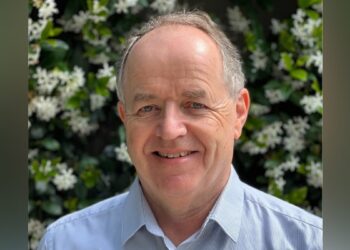AIST’s executive manager, policy and research, David Haynes told SMSF Adviser that since the Wallis Inquiry, SMSFs have grown to represent a “far larger proportion” of the superannuation system.
The Stronger Super program of reforms has led to increased responsibility for government agencies, including the ATO, APRA and ASIC, he added.
“It is necessary in that context to then review the relationship between all of the regulatory entities to make sure that they operate efficiently in relation to each other and to the industry and that there’s not unnecessary duplication or overlap or indeed gaps in the operation of the system,” Mr Haynes said.
Mr Haynes said he also believes APRA-regulated funds are subject to greater levels of scrutiny and regulation than ATO-regulated funds.
“Our position generally in relation to SMSFs is that they need to operate on a level playing field with the rest of the super industry,” he said.
“So our position is not one of opposition to SMSFs, it’s all about supporting measures that support the integrity of the system.”
Mr Haynes also reiterated calls for a “minimum level” of education akin to RG146 for SMSF trustees. He said it has “long been” AIST’s position that education requirements for trustees should go further.
“We think just as there is education starting with [RG146] in relation to people who work in the superannuation industry there should be a minimum level of trustee obligation,” Mr Haynes said.
“It’s one thing for people to get the benefit out of the system, but they also need to understand the responsibilities that are associated with it. So there needs to be some level of training that’s [commensurate] with that,” he added.



As a Public Accountant who attends to the administration of over 90 SMSF’s all my funds have a good rate of return and have a good knowledge of their trustee duties. All my trustees know if undertaking a new action with the fund to contact me to ensure that it conforms with legislation.
The ATO have reviewed the work of my Auditors (ATO’s eyes and ears) and thus audited the auditors work on some of my funds. I consider such action by the ATO as smart, requiring limited well trained staff to ensure the legislation is adhered to by Trustees, Administration Providers and Auditors.
Eric is right. Those dealing with other people’s money should be kept to a higher standard. But I suspect the last thing the AIST wants is a truly level playing field.
And if it’s a level playing field the AIST wants, let’s look at SMSF administrators being included in workplace agreements, all directors of trustees as voluntary positions, membership representation on the board etc.
It is interesting to read David Haynes comments, but some of his logic is flawed. The fact is that Industry and other public superannuation funds need not be on a level playing field with SMSFs. There is one major difference. While the trustees of a SMSF must understand the rules by which they play, they also understand that the money the control is for their own retirement. If they make an error, they themselves will suffer. The buck stops there. Industry and other funds are dealing with other people’s retirement savings. Their actions effect others, not themselves. They therefore do have a higher standard of responsibility and must accept that.
Why is everyone trying to fix what isn’t broken.